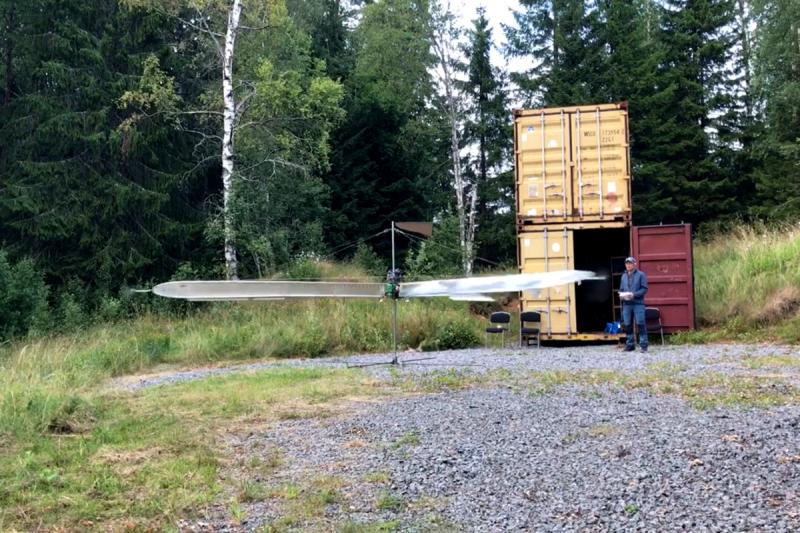
Picking propeller size for any aircraft, but especially VTOLs, it’s a tradeoff between size and RPM. You can either move a large volume of air slowly or a small volume of air quickly. Small and fast tend to be the most practical for many applications, but if you’re thinking outside the box like [amazingdiyprojects], you can build a massive propeller and make it fly at just one revolution per second. (Video, embedded below the break.)
One of the challenges of large propellers is their high torque requirements. To get around this, [amazingdiyprojects] drives the 5m diameter propeller from the tips using electric motors with propellers. The blades are simple welded aluminum frames covered with heat-shrunk packing tape, braced with wires for stiffness.
The flight controller, with its own battery, is prevented from spinning with the blades by counteracting the spin of a small DC motor. Each blade is equipped with a servo-driven control surface, which can give roll and pitch control by adjusting deflection based on the blade’s radial position.
[amazingdiyprojects] control setup is very creative but somewhat imprecise. Instead of trying to write a custom control scheme, he configured the old KK2.15HC flight controller for a hexacopter. Each control servo’s PWM signal routes through a commutator disc with six sectors, one for each motor of the virtual hexacopter. This means each of the servos switches between six different PWM channels throughout its rotation. To compensate for lag when switching between channels, [amazingdiyprojects] had to tune the offset of the commutator disc otherwise it would veer off in the wrong direction. After a second test flight session to tune the flight controller settings, control authority improved, although it is still very docile in terms of response.
[amazingdiyprojects] is no stranger to giant VTOL aircraft, having built and flown in his own manned drones, powered by both internal combustion and electric motors. This latest craft is very similar to [Nicholas Rehm]’s spinning tricoper, and might be able to take advantage of the control scheme.
0 Commentaires